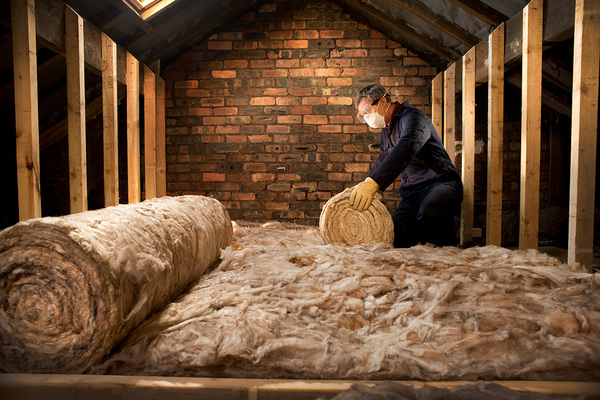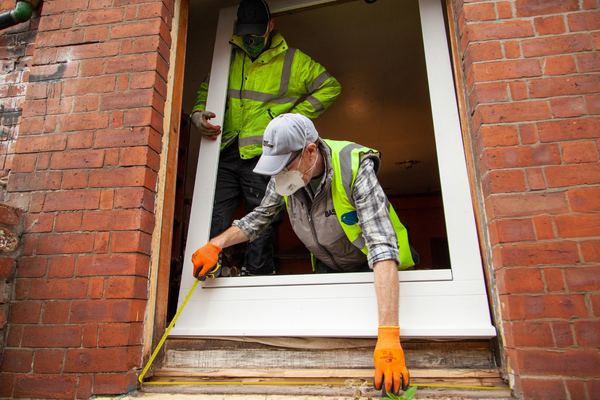Decarbonising housing association homes to cost ‘at least’ £36bn, study warns
The cost of decarbonising housing association stock in England by 2050 will run to at least £36bn, with a solution that minimises fuel poverty potentially requiring an extra £13bn, a study has found.
Research released today by Savills on behalf of the National Housing Federation (NHF) – as the government publishes its heat and buildings review into decarbonising buildings – warned that the sector “will not be able to absorb the costs of decarbonisation without support”.
The finding echoes research carried out by Inside Housing last year, which estimated the cost of decarbonising the UK’s entire social housing stock, including council homes, at £104bn.
That assessment assumed an investment of about £20,000 per home, whereas Savills’ analysis sets out costs of up to £24,000 for flats and £37,000 for houses, based on them being brought up to have an energy performance certificate (EPC) rating of C and being fitted with air-source heat pumps.
The report’s headline spending figures sit on top of housing associations’ existing stock investment programmes, assumed to run to about £70bn between now and 2050.
Kate Henderson, chief executive of the NHF, said the body was “committed to working with the government and industry to come up with a strategy to ensure the full costs of net zero can be met long term”.
Ms Henderson added: “For now, the government could help us make significant progress by delivering on its [2019] manifesto pledge and bringing forward the £3.8bn Social Housing Decarbonisation Fund in the upcoming Spending Review.”
Savills’ research, which based its costings on work with 17 providers owning almost 379,000 homes, concluded that “significant” grant funding, along with borrowing to the limits of covenants, will be necessary if housing associations are to achieve net zero.
The sector should “press the case for a funding package comprising a multiyear commitment to the Social Housing Decarbonisation Fund, guarantees on borrowings on the model of the successful Affordable Homes Guarantee Scheme (AHGS) 2020, and… a settlement on a reduction in VAT for [energy-efficiency] works,” the report said.
Interviews carried out for the study with policymakers, academics, contractors, financial experts and housing association staff, concluded that a new standard for decarbonisation work, including a coherent definition of ‘net zero’, was essential in order to focus efforts within the sector.
Interviewees, who reflected on lessons learned from the Decent Homes standard, also highlighted the “critical” importance of strong resident engagement and solid stock condition data, as well as the need for rigorous post-completion monitoring.
They were divided as to the relative merits of taking a less disruptive whole-house approach to retrofitting, versus a two-phase fabric-first method, which would address insulation initially, putting less risk on providers because of likely advances in heat pump cost and technology.
Two of three scenarios modelled by Savills relied on fabric-first investment to EPC C by 2030, with heat pumps then being installed over the following two decades.
The £36bn ‘base case’ “requires reform of electricity pricing and SAP [standard assessment procedure] methodology, as on current definitions the substitution of electricity for gas will reduce the EPC rating, in some cases below C”, the report warned.
A recommended ‘central case’ priced at £49bn would also involve continuing to improve building fabric post-2030 to keep EPC ratings at C or better and ensure residents do not face undue rises in energy costs “assuming minimal change in the policy environment or electricity pricing”.
Meanwhile a third ‘maximum energy-efficiency case’, entailing retrofitting homes to their maximum practically achievable SAP before replacing heating systems, would cost around £58bn, Savills estimated.
“Housing associations need direction from government on everything from what fabric standards will be necessary to support clean heat, [to] how we can accurately measure decarbonisation and, crucially, reform of electricity pricing to ensure new heating systems don’t lead to higher bills,” said Ms Henderson.
“Without policy change to bring down the costs of electricity, we would need a much higher standard of insulation to keep fuel bills affordable.”
John Kiely, a director of housing and public sector at Savills, said the range of costs, which he called “an early estimate”, highlighted “the uncertainties we face between now and 2050”.
“If improvements in technology and policy changes to avoid increasing fuel poverty don’t materialise, then we would expect costs could be much higher [than £36bn],” Mr Kiely added.
“The challenge between now and 2050 will be getting the right balance between appropriate measures, cost benefits and investing in the right stock.”
Sign up for our asset management newsletter
Already have an account? Click here to manage your newsletters




